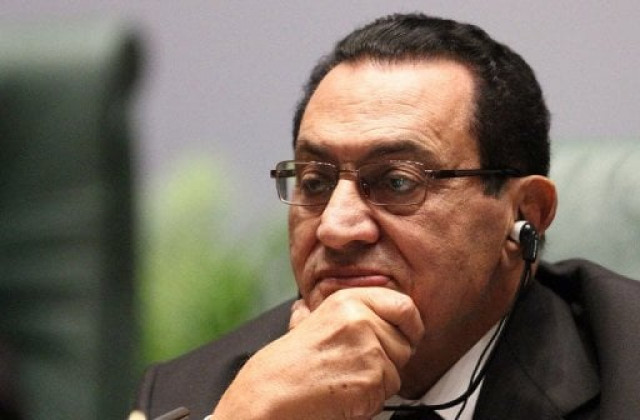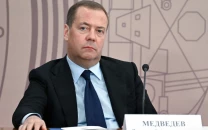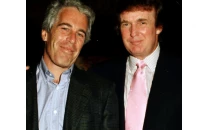Mubarak, sons to be tried for killing protesters
Mubarak and his sons Alaa and Gamal have been charged with "premeditated murder" of protesters.

The prosecutor's office said that Mubarak and his sons Alaa and Gamal have been charged with "premeditated murder of some participants in the peaceful protests of the January 25 revolution."
"The public prosecutor Abdel Maguid Mahmud has decided today to refer former president Hosni Mubarak and his two sons Alaa and Gamal, who will remain under detention, and businessman Hussein Salem to a criminal court," it said.
The murder charges may lead to a death sentence if Mubarak is found guilty, the justice minister said earlier this month.
Corruption charges
Mubarak and his sons have also been charged with profiteering and using their positions for illicit gains and squandering public funds, the prosecutor's office added.
Several of the charges extend to the fourth defendant, Hussein Salem, a businessman close to Mubarak who has been blamed for a controversial deal to supply Israel with gas at lower than usual prices. He has fled the country.
Mubarak, who was forced to resign on February 11 after 18 straight days of mass protests, is in police custody in a hospital in the Red Sea resort of Sharm el-Sheikh.
The veteran leader, who ruled Egypt for three decades, was hospitalised in mid-April after reportedly suffering a heart attack during questioning.
Premeditated murder
The prosecutor also referred to the military prosecution complaints against Mubarak that he had taken a commission from arms deals.
Prosecutors allege that Mubarak "participated by agreeing with the former interior minister Habib al-Adli and some former police commanders - in committing premeditated murder," MENA said.
They "incited some officers and policemen to shoot the victims and run them over with vehicles."
An official inquiry found that at least 846 people were killed in the protests, many of them from gunshot wounds.
Mubarak's security chief Adli has already been sentenced to 12 years in jail for corruption and faces another trial on charges of ordering the shootings of demonstrators.
The charges were welcomed by a senior member of the Muslim Brotherhood, the country's most formidable opposition group under Mubarak.
"The decision was awaited by Egyptians for a long time," said Essam al-Erian, who is also the vice president of a Brotherhood-affiliated political party.
London-based human rights group Amnesty International said the charges were a "very welcome step" but called for the prosecution of "all those found responsible for the killings and other human rights violations."
The public prosecutor had ordered Mubarak's transfer to a hospital in Cairo's Tora prison, where his two sons are imprisoned.
The official MENA news agency reported after the charges were announced that the former president's health had improved and a medical team would send its report to the prosecutor.
Next in line
Alaa, Mubarak's elder son, is believed to have used his position to gain a foothold in many businesses but he stayed out of politics, unlike the younger Gamal, who was widely seen as the heir apparent.
Gamal, 47, was an investment banker who rose in the former ruling party's ranks in the past decade to head its powerful policies committee.
He had reportedly taken a hawkish stance during the protests against his father's rule, urging the president to crack down.
The belief that Gamal was being groomed to succeed Mubarak was a major grievance of protesters who took to the streets starting on January 25 to demand Mubarak's overthrow.
The spectacular fall of one of the region's most powerful leaders, and a key US and Israeli ally, did not end protests by tens of thousands of Egyptians.
They are now demanding the former leader be put on trial.
The demonstrations throughout March and April placed immense pressure on the military, which assumed power after Mubarak's resignation, and led to a deadly clash with soldiers when they tried to clear an overnight protest in April.
Mubarak himself has denied any wrongdoing in an audio tape broadcast on an Arabic-language television station in April.
His lawyer, Farid al-Deeb, told AFP he had no immediate comment.
Several former regime officials are already facing trial for corruption or violence during the revolt.
Mubarak's wife Suzanne was released on bail this month after she returned assets to the government. She is suspected of corruption.



















COMMENTS
Comments are moderated and generally will be posted if they are on-topic and not abusive.
For more information, please see our Comments FAQ